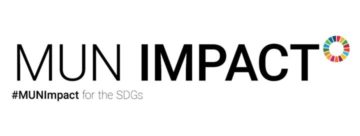A label is an unfinished sentence. A fragment upon a unique story, regulated to overused assumptions, untold due to a lack of interest. Today, generalization may be the most dangerous weapon deployed against minorities. A weapon capable of determining your education, employment, self esteem, and your life span. It was this oversimplification that paints black individuals as thugs and Muslims as terrorists, but on July 22, students Aamna Asim and Mohammad Jaski question these stereotypes in an informative presentation and exclusive interview on the impact of imperialism and colonization on modern day discrimination.
Today, modern discrimination is commonly characterized by extreme acts of violence against minorities, specifically people of African descent, across the world. Aamna’s curiosity about discrimination began after hearing about the unjustifiable deaths of George Floyd and many others leading to huge sparks in protests under the #BLACKLIVESMATTER movement. However, it was not these protests that eventually drove her passion for the subject. “That [the BlackLivesMatter movement] wasn’t really the point that made me want to talk about this, it was when my own family started dismissing it.” The treatment of George Floyd and the dismissal of the pain of so many minorities exposed both a physical and mental torment along with a cultural brainwashing that is a result of a long trend of systematic and systemic discrimination against minorities for centuries.
Christopher Colombus, is not, despite popular belief, the pioneer who discovered the Americas. The Americas were already inhabited by indigenous people who have resided there for thousands of years. This is not found in the history books however. “Even if you’re not a bad person, if you are being educated in such a system, you are going to adopt some of those ideals,” Aamna mentions. The refusal to acknowledge history outside of white history, except for designated months, indoctrinates youth to believe that whites are superior and continues to accept false narratives about minorities.
As an Iranian, residing in Iran, Mohammad was unaware of the discrimination that persists even in his own country particularly against black migrant workers. “I’ve never experienced any racism or discrimination personally,” he shares during the interview. However for him, “Doing research was just overwhelming.”
The historical kidnapping of mostly black servants for typically white harems in the Middle East was particularly shocking for Mohammad. Though this particular practice is obsolete, it still persists today through the likes of the black maids of many Middle Eastern households, some who have even committed suicide becuase of the injustice they face. “They’re treated like animals and stripped of their rights. Their passports are taken, their ID cards are taken, and they have no identity in that country.” Mohammad stated. “I could not believe that was happening in such a progressive society,” he further continues.
For years, black and mixed women straightened their hair in order to fit into the white standard of beauty. In a South African school, many black students were not allowed to wear their hair naturally, despite the fact that South Africa is a majority black nation. “How absurd is it that natural African hair is banned in an African country in African schools,” Aamna expresses. Eventually, this created a need for a platform for upliftment for the natural hair types of black and mixed women, hence the natural hair movement. This called for a movement for acceptance of black hair. False narratives about white skin color being the most desirable have also created the billion dollar skin lightening industry, which is a common practice for women of color. In South East Asia, 61% of women participate in skin lightening, and many women are encouraged to seek so in order to succeed in life. The white standard of beauty has created a fictitious belief that typically white features were in fact the most beautiful.
Discrimination is two faced. It can be loud in the form of police brutality or it can be subtle in the form of one look messaging the signal, “You don’t belong.” Aamna and Mohammad’s presentation revealed that discrimination is very nuanced, and constantly evolving. “We need to start listening to the voices of people being discriminated against so that they can tell their version of their struggle, not someone else’s romanticized.” SDG 16; peace, justice, and strong institutions, can never be fully realized until the systemic and systematic discrimination against minorities ceases. However there is hope. With the murderers of George Floyd eventually being incarcerated, and the creation of more bills calling for police reform, structural change does look in sight. Through workshops such as Power and Prejudice, Aamna and Mohammad have plans of spreading awareness of discrimination and creating a world where black and minority lives truly matter.
–
By Ayomide Ajakaiye
